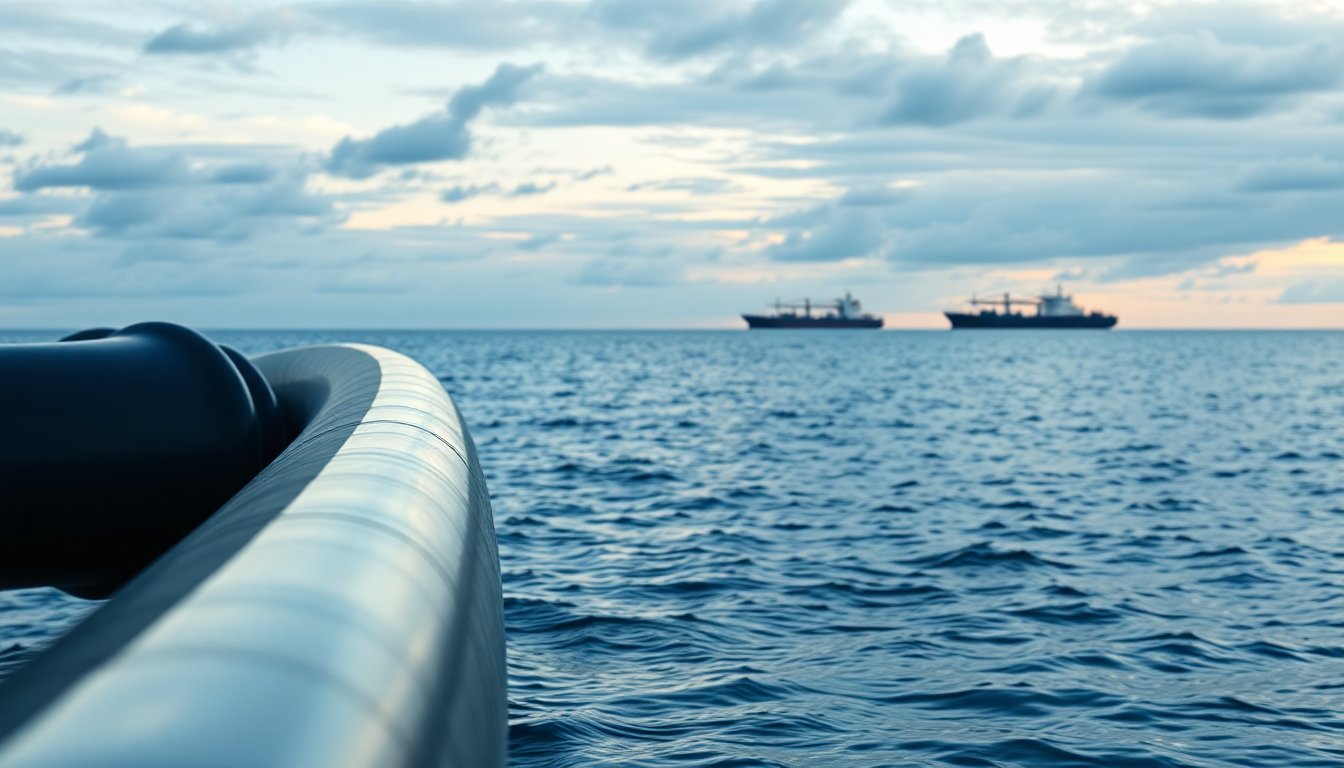Table of Contents
“`html
The investigation surrounding the Nord Stream pipelines has created a complex web of international tension, particularly among European nations. After three years of intensive investigation led by German authorities, a Ukrainian national, Serhij K., has emerged as a key suspect in the sabotage of these crucial energy conduits. The implications of this investigation extend beyond legal considerations, as it threatens to splinter the unity of Europe in its response to the ongoing conflict involving Ukraine.
Details of the Nord Stream sabotage investigation
A series of coordinated explosions targeted the Nord Stream pipelines, which are vital for natural gas transport between Russia and Europe. This attack resulted in significant damage, with two lines of Nord Stream 1 and one of the two lines of Nord Stream 2 being compromised. German authorities have accused Serhij K. of being one of the masterminds behind this operation, raising the stakes in an already delicate geopolitical environment.
Legal battles and human rights concerns
Currently detained in Italy, Serhij K. is facing serious charges related to the explosive sabotage and is reportedly on a hunger strike to protest his treatment. According to Ukrainian human rights commissioner Dmytro Lubinez, the condition of the 49-year-old suspect is deteriorating, prompting calls for protection and better treatment from Ukrainian officials. Lubinez has expressed deep concern over the adequacy of the legal process and the treatment K. is receiving while in custody.
Despite the serious allegations against him, K. has reportedly refused food since late October, claiming that his demands for humane treatment and basic rights are being ignored. His lawyer has corroborated these claims, stating that the suspect’s health is in a precarious state, leading to urgent appeals to various international bodies to intervene.
Wider implications for European unity
As investigations unfold, the situation presents a challenge to the solidarity among European nations, particularly in relation to their stance on Ukraine. The ongoing legal entanglements involving Serhij K. and another suspect, Wolodymyr Z., who is in custody in Poland, have sparked a complex legal debate about extradition and jurisdiction. The Polish courts recently denied the extradition of Z., which complicates the efforts to hold those responsible for the Nord Stream sabotage accountable.
The role of international politics
The shifting landscape of international relations adds another layer of complexity to the investigation. Germany’s push for justice in the Nord Stream case is seen not only as a legal endeavor but also as a significant political statement amid the ongoing conflict with Russia. As the investigation progresses, the potential for further diplomatic friction among European allies intensifies, especially as different countries take varying stances on the matter.
The situation places European unity at risk, as nations grapple with the broader implications of the sabotage on their energy security and foreign policy objectives. The differing approaches to extradition and the handling of suspects reflect deeper political divisions that could hinder a cohesive European response to the crisis.
Looking ahead: The future of European collaboration
As the investigation continues, the necessity for a unified European approach to handling the aftermath of the Nord Stream sabotage becomes increasingly evident. The potential for political fallout underscores the importance of dialogue among nations, as they navigate the complexities of legal proceedings and the broader geopolitical landscape. The outcome of this investigation could very well determine not only the fate of the individuals involved but also the future trajectory of European unity in the face of external threats.
In conclusion, the Nord Stream investigation serves as a litmus test for European cooperation, revealing underlying tensions that may challenge the cohesion of the continent’s response to the ongoing war in Ukraine. The situation demands careful attention as Europe seeks to balance justice with solidarity and strategic interests.
“`


